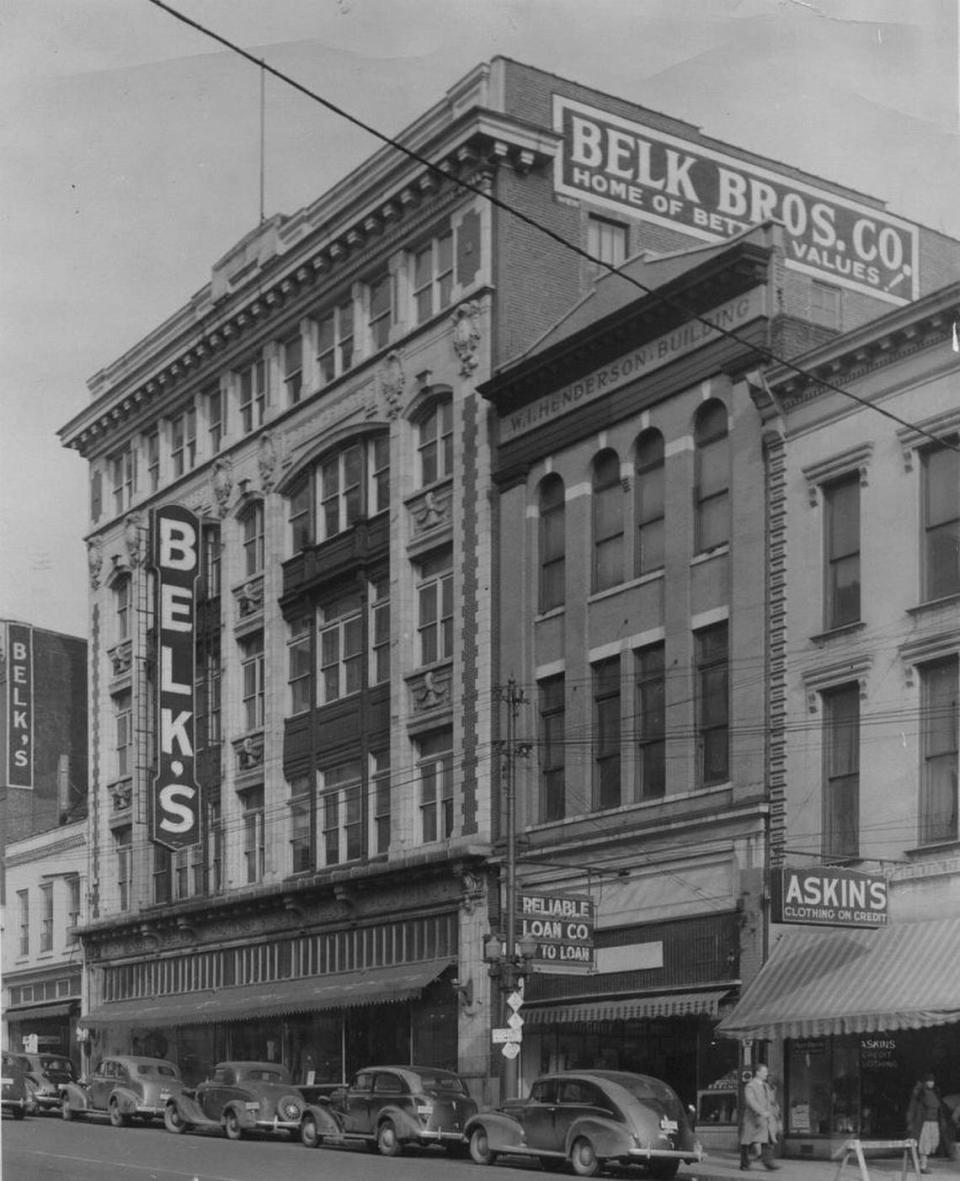Belk to file bankruptcy. Department stores to stay open, with no layoffs or closures.
- Oops!Something went wrong.Please try again later.
Belk, the 133-year-old, Charlotte-based department store chain, will file for Chapter 11 bankruptcy, its owner, the private equity firm Sycamore Partners, said Tuesday.
Belk will continue “normal operations” as it goes through bankruptcy, according to a news release from Sycamore. Pending objections, New York-based Sycamore expects Belk to exit bankruptcy by the end of February.
“We’re confident that this agreement puts us on the right long-term path toward significantly reducing our debt and providing us with greater financial flexibility to meet our obligations and to continue investing in our business,” Belk CEO Lisa Harper said in a statement.
Chapter 11 bankruptcy lets companies stay open while they get court approval of a plan to exit bankruptcy. Creditors will get the opportunity to weigh in on the exit plan and can try to block it.
Sycamore will retain majority control of Belk, according to an agreement it reached with some of Belk’s creditors. A group of the department store’s creditors, led by the private equity giants KKR and Blackstone, will get a minority stake. The bankruptcy plan will help Belk shed about $450 million of debt, and push out when other debts are due. Belk is also slated to get $225 million in new capital.
There are not expected to be any layoffs or store closures in the bankruptcy, according to Belk spokeswoman Jenny Anderson. The bankruptcy is scheduled to be filed Feb. 24.
Three generations of the Belk family led the company to become the biggest family-owned department store chain in the country by 2015, when the family sold it for $3 billion to Sycamore.
Belk has more than 20,000 employees at its nearly 300 stores in 16 Southern states. Its corporate offices opened in 1988 on Tyvola Road in Charlotte, and hosts about 1,300 workers.
How did Belk get here?
The 2015 sale to Sycamore loaded the chain with over $2 billion in debt at a time when department stores across the country were rapidly losing popularity.
More debt was not necessarily a death sentence, although debt-laden retailers do go bankrupt regularly. Belk’s new management team led by Harper, its first female CEO, just needed to execute exceptionally well. Industry observers say that didn’t happen.
As other department stores created a robust “omni-channel” offering, where in-store shopping and online shopping are integrated, Belk lagged behind. Same-store sales at Belk have steadily dropped since 2016, according to Moody’s.
On top of that, Sycamore paid itself a healthy dividend that S&P analysts said took a lot of cash flow out of the business that could’ve been used to build up online capabilities. That further handicapped Belk’s odds.
So, when the pandemic hit in early 2020, the business wasn’t necessarily a world-beater. And while online shopping penetration did tick up during the pandemic, Belk still struggled.
Belk on the brink: NC department store in deep financial trouble as COVID takes a toll
Belk furloughed workers in March as the pandemic hit and cut senior staff pay up to 50% as stores temporarily closed. And in July, Belk cut an undisclosed number of jobs, mostly at its headquarters. This followed the 80 corporate jobs cut in February.
Later in 2020, reports arose that Belk was months behind in paying some vendors. Its debt was trading at a fraction of its sticker price. Credit raters said a cash shortfall was near, and that bankruptcy was on the table.
That option was the one Sycamore picked Tuesday. Belk became the latest in a string of department stores to go bankrupt in the pandemic, joining JCPenney and Nieman Marcus.
Storied history
Originally opened in 1888 as New York Racket in Monroe, Belk thrived in the 20th century in a rapidly suburbanizing South. A Belk store was often an anchor at the dozens of malls that sprung up across the South.
For many, Belk was the nice, but not too nice, place to shop for a prom dress or a first suit. It was a favorite son, locally-owned and often one of the few big stores in smaller cities and towns.
Profits from the stores helped splash the family name on theaters, schools and medical centers across Charlotte. Fundraisers often counted the family as top donors. In the 1970s, CEO John Belk served as mayor of Charlotte. They were the model of Charlotte’s Presbyterian elite.
As other department store families sold their empires, Belk was one of the last department stores to stay owned by the family. Tim and John Belk, heirs to the empire, served as CEO and president, respectively, before they sold the company.



